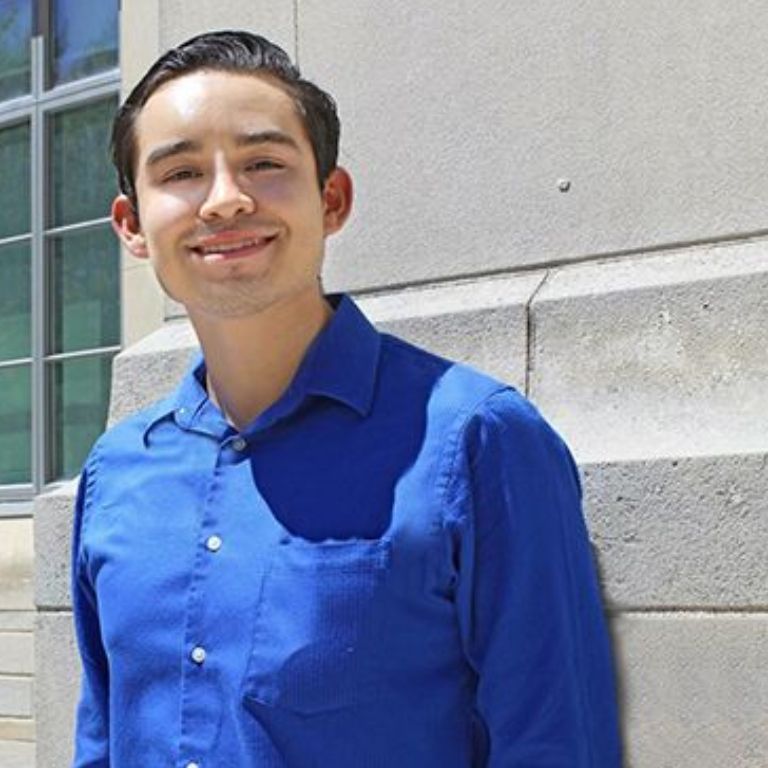"When it comes to science in general you have to actively learn, and when it comes to how the world works you take just one little thing, whether it be food, biology, or chemistry and get this great feeling of learning about science," said Amezcua. "It's a little intimidating, but the LSAMP is a great way to ease you into that world, so it doesn't just smack you in the face."
During his research, Amezcua has received the opportunity to thoroughly investigate ETS proteins and their different effects on cancer. Also, with assistance from Dr. Peter Hollenhorst, Amezcua and others participating in the lab were able to experience first-hand medical techniques that will benefit them for their future careers.
When thinking about his future, Amezcua hopes to attend Indiana University School of Medicine which will then lead him to work with neuroradiology in a facility that provides free healthcare to their patients.
"My folks came from Mexico, and we didn't really have a lot of money, so we never had insurance. My little sister couldn't get her braces and a lot of my friends also couldn't get any health care," said Amezcua. "I've worked and volunteered at a hospital in Indianapolis where they don't financially discriminate, and you see a bunch of people from my background who can get their healthcare. I would like to work in a similar area, or in a free clinic."
Amezcua highly recommends the LSAMP program for qualifying students who are interested in receiving the same beneficial experience.
"100% yes. It's a great time. You chose 3-5 labs around campus, either science or psychological or environmental, or anything part of science, and you pick what you like," said Amezcua. "For example, there are labs such as working with memory effects on video games or effects of cannabis."
The Louis Stokes Alliances for Minority Participation (LSAMP) is a program that was congressionally mandated in 1991 and has been managed by the National Science Foundation with a primary goal of expanding the participation of minority students at the baccalaureate level and advanced degrees in science, technology, engineering and mathematics (STEM) disciplines. The LSAMP program assists universities and colleges to diversify STEM workforce through their efforts at significantly raising the numbers of students completing high quality degree programs in STEM education.
The Indiana STEM LSAMP (IN LSAMP) consists of three research institutions: IUPUI, Indiana University Bloomington (IUB), Ball State University (BSU); two four-year regional universities: Indiana University Northwest (IUN) and Indiana University South Bend (IUSB); and Ivy Tech Community College(ITCC) Indianapolis, working together to increase the participation and development of underrepresented students in STEM disciplines.
If interested in applying for the LSAMP, check out INLSAMP.org for more information or IU's Competitive Awards and Research page for other similar opportunities.


